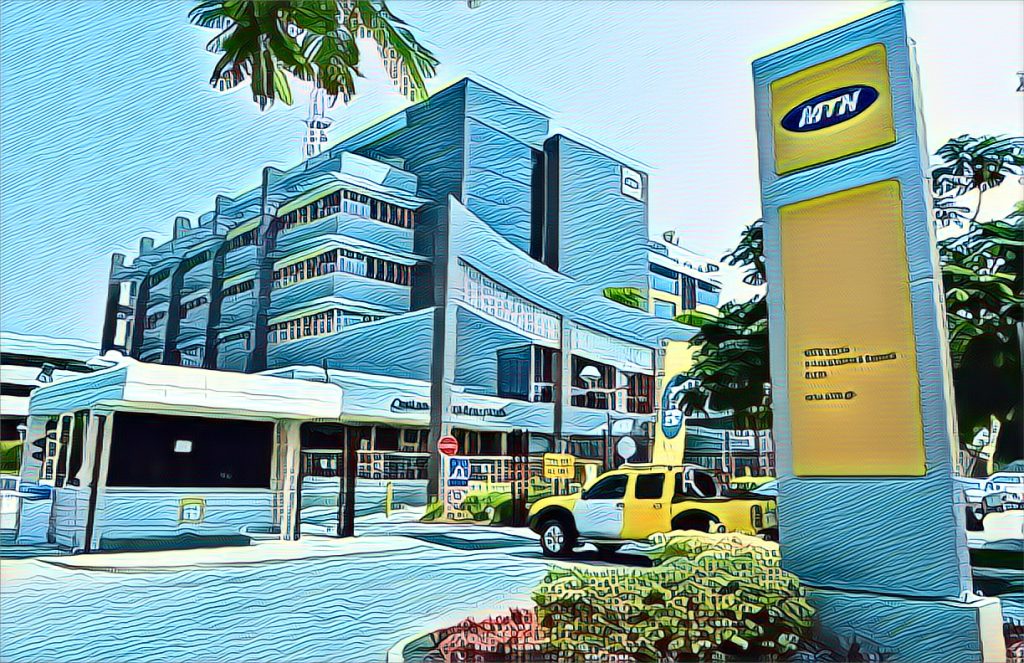KEY POINTS
- Ghana’s e-commerce industry thrives on rising internet penetration, with 40% of the population online, creating a growing digital marketplace.
- Mobile commerce dominates Ghana’s digital shopping, leveraging 80% mobile penetration and robust mobile money platforms like MTN Mobile Money.
- Challenges such as poor logistics and cybersecurity gaps hinder growth, but innovative partnerships and regulatory frameworks offer transformative opportunities.
E-commerce is rapidly transforming the global retail landscape, with Africa emerging as a new frontier for digital commerce. Across the continent, the adoption of online shopping platforms has surged, presenting significant opportunities for economic growth and development.
Among African nations, Ghana stands out as a rising star in e-commerce, driven by technological advancements and an increasingly tech-savvy population (Oxford Business Group).
In Ghana, the e-commerce market has experienced exponential growth, fueled by increasing internet penetration, widespread mobile phone adoption, and a burgeoning middle class (WorldBank). The country’s youthful population and innovative payment solutions further create fertile ground for online businesses to thrive.
Let’s delve into Ghana’s e-commerce landscape, exploring the key drivers, challenges, and opportunities shaping its evolution. As e-commerce continues to gain momentum, Ghana’s potential to become a regional hub for digital commerce is becoming increasingly evident.
Drivers of e-commerce growth in Ghana
1. Increasing internet penetration
Ghana’s internet penetration has grown significantly over the past decade, with approximately 40 percent of the population now having access to the internet. This digital connectivity has been a game-changer for e-commerce, enabling businesses to reach a wider audience and consumers to access goods and services at their convenience. Investments in fiber-optic infrastructure and mobile broadband have further enhanced internet accessibility, even in rural areas.
The government’s Digital Ghana Agenda, aimed at expanding ICT infrastructure and promoting digital inclusion, has also played a crucial role in driving this growth. Online platforms have leveraged this connectivity to introduce services that cater to various consumer needs, from fashion to electronics and groceries. Rising internet penetration is not only empowering consumers but also encouraging traditional retailers to establish online presences, thus broadening the scope of Ghana’s e-commerce ecosystem.
2. Mobile phone adoption
With a mobile phone adoption rate of approximately 80 percent, Ghana is one of Africa’s most mobile-connected nations. This high penetration rate has created a foundation for mobile commerce (m-commerce) to flourish. Smartphones, in particular, have become a vital tool for accessing e-commerce platforms, enabling consumers to shop, make payments, and track deliveries seamlessly.

Mobile network operators have also introduced affordable data packages, making it easier for consumers to stay connected. Moreover, integrating mobile money services, such as MTN Mobile Money and Vodafone Cash, has revolutionized digital payments, providing secure and convenient transaction options (Central Bank of Ghana). As mobile connectivity expands, e-commerce businesses in Ghana are leveraging this trend to deliver more personalized and user-friendly shopping experiences.
3. Growing middle class
Ghana’s middle class has been expanding steadily, accompanied by rising disposable incomes and changing consumer preferences. This demographic shift has increased demand for quality products and services, driving the growth of online shopping. Middle-class consumers, particularly urban dwellers, are drawn to the convenience and variety offered by e-commerce platforms.
Additionally, the younger generation—comprising a significant portion of Ghana’s population—is tech-savvy and more inclined toward digital shopping (World Bank). These consumers value the ability to compare prices, read reviews, and shop at any time, making e-commerce an attractive alternative to traditional retail. The growing middle class’s purchasing power is undoubtedly a driving force behind Ghana’s burgeoning e-commerce industry.
Key players in Ghana’s e-commerce industry
1. Jumia Ghana
Jumia Ghana is the dominant player in the country’s e-commerce market, offering a wide range of products, from electronics to fashion and groceries. Its user-friendly platform, coupled with various payment options, has made it a go-to destination for online shoppers. Jumia’s innovative logistics solutions, including partnerships with local delivery companies, ensure efficient order fulfillment even in remote areas.

The company’s promotional campaigns, such as Black Friday sales, have significantly boosted online shopping adoption in Ghana. Jumia’s commitment to enhancing customer experience through timely delivery, secure payments, and responsive customer service has solidified its market leadership. Furthermore, its mobile app—designed to cater to the growing number of mobile-first consumers—has been instrumental in driving traffic and sales.
2. Melcom online
Melcom, a household name in Ghana’s retail sector, has expanded its footprint with Melcom Online, catering to the increasing demand for digital shopping. The platform’s strength lies in its extensive product catalog, ranging from home appliances to personal care items. Melcom’s established reputation for quality and affordability has given its e-commerce venture a competitive edge.
The company has also prioritized convenience, offering flexible payment methods and home delivery services. By leveraging its existing supply chain and customer base, Melcom Online has rapidly gained traction among Ghanaian consumers. Its focus on bridging the gap between offline and online retail ensures it remains a formidable player in the e-commerce space.
3. Other players
In addition to Jumia and Melcom Online, platforms like Tonaton, OLX, and Afrishop are making significant contributions to Ghana’s e-commerce ecosystem. Tonaton and OLX primarily serve as classifieds platforms, connecting buyers and sellers of goods ranging from vehicles to real estate. Afrishop, on the other hand, focuses on offering affordable fashion and lifestyle products, targeting young consumers.
These players, each with unique selling propositions, contribute to the diversity and competitiveness of Ghana’s e-commerce market. Their presence underscores the growing consumer appetite for digital commerce and the increasing willingness of businesses to embrace the online retail model.
Challenges facing Ghana’s e-commerce industry
1. Infrastructure challenges
Despite its growth, Ghana’s e-commerce industry faces significant infrastructure challenges. Poor road networks and inadequate logistics facilities hinder the efficient delivery of services, particularly in rural areas. These issues increase operational costs and impact customer satisfaction, creating barriers to scaling e-commerce businesses.
2. Security concerns
Cybercrime and online fraud pose major risks to Ghana’s e-commerce ecosystem. Consumers and businesses alike remain cautious about sharing sensitive information online, highlighting the need for robust cybersecurity measures.
3. Regulatory framework
The absence of a clear regulatory framework governing e-commerce creates uncertainties around taxation, consumer protection, and data privacy. Addressing these gaps is crucial for fostering trust and encouraging investments in the industry.
4. Opportunities for growth and development
The increasing demand for online shopping, the proliferation of digital payments, and the potential for improved logistics solutions present immense opportunities for Ghana’s e-commerce growth.
Collaboration between private companies and the government can address infrastructure challenges, while innovation in digital services can further enhance customer experiences.
Ghana’s e-commerce industry is poised for significant growth, driven by technological advancements and evolving consumer behaviors.
While challenges remain, the industry’s potential to transform retail, create jobs, and stimulate economic development cannot be overstated.
With the right investments and policies, Ghana is well on its way to becoming a leader in Africa’s digital commerce revolution.





21 comments
Mit Live-Chat und E-Mail können Sie jederzeit Hilfe erhalten.
Nachdem Sie ein Konto erstellt, Ihre Identität schnell
überprüft und €20 eingezahlt haben, erhalten Sie im Rahmen des Willkommenspakets
zusätzliche Drehungen an bestimmten Slots. Wenn Sie selbst oder
jemand in Ihrem Umfeld Anzeichen problematischen Spielverhaltens zeigt, wenden Sie sich bitte an eine professionelle Beratungsstelle.
Das BeepBeep Casino bietet für jeden Spieler, egal ob Einsteiger oder Profi, etwas Passendes, was es zu einem idealen Ort für Online-Glücksspielunterhaltung macht.
Außerdem kannst du nicht nur an Slots spielen, sondern es werden auch Tischspiele und
Livespiele angeboten. Vor allem diejenigen, die gerne mit Cyberwährungen spielen möchten, sind hier gut aufgehoben. Dadurch ist sowohl
für die Fans von klassischen Tischspielen wie Roulette und Blackjack ein Angebot vorhanden, genauso wie
für diejenigen, die die Spielautomaten bevorzugen. So kannst du zum Beispiel ohne
Pause auch gleichzeitig an mehreren Spielautomaten spielen und
die Autostartfunktion verwenden. Diese Masterlizenz erlaubt es
dem BeepBeep Casino, Glücksspiele anzubieten und das Unternehmen wurde dementsprechend
von Curacao autorisiert. Der Besitz der Lizenz zeigt, dass du legal
im Beep Beep Casino spielen kannst.
Das klassische amerikanische Roulette mit dem zusätzlichen Sektor “00” bietet Nervenkitzel und
die Chance auf einen großen Gewinn. Suchen Sie nach dem heiligen Buch der
Toten und aktivieren Sie die Freispiele mit sich erweiternden Symbolen für maximale Gewinne.
Treten Sie jetzt bei und spüren Sie die Aufregung
unseres Echtgeld Casinos, wo jeder Spin und Deal Sie näher zu bedeutenden Gewinnen bringt!
References:
https://online-spielhallen.de/starda-casino-erfahrungen-ein-umfassender-uberblick-fur-spieler/
Damit kletterst du im Ranking nach oben und erhältst etwa einen wöchentlichen Bonus, zusätzliche Freispiele oder
prozentuales Cashback. Spendiert werden 50 Freispiele für den Automaten Book Of Sirens.
Auf die Freispiele kannst du ebenfalls zugreifen,
falls du keinen anderen aktiven Bonus hast.
Der Bonus ohne Einzahlung bringt dir 50 Freispiele für Book
of Sirens und 25 Euro Gratisgeld
Live-Casino-Spiele, Tischspiele wie Blackjack oder Roulette
und Instant Games sind grundsätzlich von der Bonusnutzung ausgeschlossen.
Freispiele aus Verde Casino Promo Codes haben oft niedrigere Umsatzanforderungen als Bonusgeld.
No-Deposit-Bonusgeld unterliegt typischerweise einem 3-fachen bis 5-fachen Umsatz, während Einzahlungsboni
eine 40-fache Umsatzanforderung haben. Es ist wichtig
zu beachten, dass die Mindesteinzahlung exakt erreicht oder überschritten werden muss, um den Bonus
zu aktivieren. Für diesen relativ geringen Betrag erhalten Sie 45 Euro Bonusgeld, was einem
Bonuswert von 225% entspricht. Der spezielle “VERDEFORTYFIVE” Promo Code erfordert eine Mindesteinzahlung von 20 Euro.
References:
https://online-spielhallen.de/lapalingo-casino-freispiele-alles-was-sie-wissen-mussen/
144min – Deutsch, Englisch, Spanisch, Ungarisch, Polnisch, Tschechisch, Französisch, Italienisch,
Russisch 144min – Deutsch, Französisch, Ungarisch, Polnisch,
Russisch, Tschechisch, Englisch, Spanisch, Italienisch Derzeit auf 6
Streaming-Diensten verfügbar.
US-Dollar, womit der Film 2025 auf Platz 8 der umsatzstärksten Bond-Filme stand.
November 2006 – wurden mit dem Film 82,2 Millionen US-Dollar eingenommen. Bereits eine
Woche später – noch vor dem deutschen Kinostart am 23.
Die deutschsprachigen Darsteller synchronisierten ihre Rollen durchgängig selbst.
Die deutsche Synchronbearbeitung entstand bei Interopa Film in Berlin.
References:
https://online-spielhallen.de/meine-umfassende-fresh-casino-erfahrung-ein-tiefer-einblick/
After weeks of testing, depositing, spinning, and cashing out, I’ve
narrowed down the top-rated real money online casinos Australia has
to offer. Yes, Australians can play pokies at licensed offshore online casinos in Australia for
real money. Use our list of the top 5 casinos and get the best welcome bonuses available on Australia’s most
popular real money online gambling sites. The top Australian online casinos offer hundreds of pokies, table games, video
poker titles, and live dealer games; some offer 1,000+ titles.
Signing up with any of my recommended real money Australian online casinos
gives you access to over 5,000 games, sometimes even double that.
Popular choices are international non BetStop casinos, which offer superior
gameplay without BetStop restrictions imposed by Australian authorities.
As mentioned, Australian players can access various online casino payment
methods. Cryptocurrencies such as Bitcoin, Ethereum, and Tether are
gaining popularity in online casinos. Visa and Mastercard are widely accepted at Australian online casinos.
Australian online casino players can easily access multiple secure and convenient
payment methods. VIP bonuses are exclusive rewards for
high-rollers or loyal players with higher tiers in a casino’s loyalty program.
They’re great for players who don’t trust crypto or prefer
linking to their bank. They’re ideal for players who value privacy or want fast payouts without verification for smaller amounts.
Joka Casino and Wolf Winner Casino have slick apps for
iOS and Android, with full access to games and banking.
Jackpot Jill Casino’s bonuses have clear terms but always read the fine print.
References:
https://blackcoin.co/epiphone-casino-overview/
Whether you’re on the train, in the backyard, or avoiding boring meetings, Skycrown makes
it dead easy to jump in and play for real cash.
IOS players can stick with the browser version, which works just as well.
No downloads, no lag, just fast-paced casino energy any
time of day.
Selecting the right casino is about matching the platform to your style.
When it comes to withdrawals, we don’t believe in waiting games.
By following safe play habits and reaching out for help when needed, you can make sure your experience stays positive and balanced.
SkyCrown’s Curaçao license ( sublicense 8048/JAZ) ensures compliance with stringent regulations, guaranteeing a fair and transparent gaming experience.
Subsequent deposits bring even more excitement, with 100% up to
A$1,300 and 75 free spins on the second deposit, and
150% up to A$4,000 plus 150 free spins on the fourth.
Sign up now with the promo code Skycrown Casino and experience
the ultimate gaming thrill with SkyCrown! Plus, with our top-tier
mobile access, you can play on-the-go without missing a beat.
References:
https://blackcoin.co/star-sydney-online-casino-guide/
There are multiple ways to login to the e-Filing portal.
The process to login when higher security options are chosen, is also
provided in this user manual. There are various methods to
login to the e-Filing portal. Thank you taxpayers for filing your ITRs in time!
All rooms and suites are non-smoking and offer the latest touch screen technology, 24-hour guest service and access to the resort pools and gymnasium.
A 12 seat dining room with adjoining butler’s kitchen allows guests to entertain in exceptional style complete with legendary Crown service.
Located within the luxurious Crown Towers Perth, Crown Spa
offers an oasis of calm designed to restore balance to your mind, body, and
soul. Find thoughtful souvenirs, Crown-branded
merchandise, and travel essentials at conveniently located resort
stores. Crown Perth is home to a collection of high-end retail outlets offering
luxury fashion, jewelry, watches, and accessories.
Explore a curated selection of premium boutiques, designer labels,
and gift stores located throughout the Crown Perth resort precinct.
Crown Perth regularly features live music performances, tribute nights, and acoustic sets
across its bars and venues. With over 2,000 seats and state-of-the-art
acoustics, it’s one of Perth’s most prestigious entertainment halls.
What are the prerequisites for enabling the e-Vault higher security login option for
net banking? How do I enable the ‘Login through
Net Banking’ option in my profile to resolve the access denied issue?
In cases like Net Banking, the user ID and password is not required.
References:
https://blackcoin.co/mindil-beach-casino-online-comprehensive-review/
When you register with the recommended platforms on our shortlist, you’ll find the following types of bonuses.
As you join crypto gambling sites, you’re set to enjoy many exciting benefits.
Alan Draper is a highly experienced and knowledgeable gaming expert, who has been involved in the gambling industry for over a decade.
Just like any crypto casino, CasiGO provides fast payouts and minimum verification hassle.
When it comes to games, CasiGO offers a not-too-shabby selection of 1,500 to choose from.
If you love slots and live dealer games, we cannot recommend SpinYoo Casino highly enough.
There are table games, too, obviously, and an excellent live casino selection,
with live dealer tables powered by the likes of NetEnt and Evolution Gaming – very impressive.
Because of its impressive game selection, generous bonuses, and commitment to player security.
That top prize is nothing short of spectacular, directly
competing with the biggest crypto casino prizes on the
market.
The site offers loads of reload bonuses, Play & Get bonuses, missions, tournaments and
loyalty rewards. Spinaro Casino is a great option for players seeking regular bonuses.
Froggybet Casino, launched in 2024 under Kahnawake Gaming Commission license, offers over 2,000
games and a comprehensive sportsbook. The user
interface is smooth, and online casino players can acces… Casinopunkz is an attractive, user-friendly crypto
casino that launched in 2024.
References:
https://blackcoin.co/dress-standards-in-online-gambling/
The gaming lobby showcases fresh releases alongside progressive jackpot
titles with potential massive payouts. Sky crown online accepts
various payment methods, including cards, e-wallets, and cryptocurrencies.
Skycrown requests standard documentation including
ID photos and utility bills through the account security
section.
Both new players who have yet to join Skycrown Casino and our most loyal customers find a
place on our platform and are rewarded for their trust in us.
To ensure the security of our platform and our players’ data, we
constantly invest in tools that can help us create
an increasingly secure website. The SkyCrown casino app login won’t work – Recover your access via
the email provided upon registration. A cooling-off period is also available, which allows players to enter their accounts but
not gamble. Within its scope, players can set limits
on bets, deposits, losses, and sessions. All these software providers
have earned their good reputation for delivering RNG-certified
games.
Let’s explore the features of the app and how it enhances the overall gaming experience.
Whether you’re on a commute or relaxing at home, the SkyCrown Casino app makes it easy to access the platform
on your smartphone or tablet. Furthermore, SkyCrown Casino online is designed
to offer smooth and enjoyable gameplay.
References:
https://blackcoin.co/heart-of-vegas-casino-review/
For Android users, King Billy Casino offers a fully functional mobile application that provides quick
access to all features and games. The VIP Club
at the casino offers numerous benefits for all active players.
The platform offers a wide range of bonuses, from welcome packages to exclusive offers for loyal customers.
Tournaments at King Billy online casino make gameplay even more exciting,
offering not only entertainment but also the chance to
compete for additional prizes. These games are grouped
in the “Top Games” section, where players can filter by
theme or provider.
Online pokies, table games like blackjack and roulette, and
live dealer experiences are all available. King Billy Casino boasts an impressive library of
over 5,000 games catering to Australian players’ preferences.
King Billy’s got the goods – a whopping 5,000+ games to
play, and we’re not just talking about your run-of-the-mill slots (although,
Kingbillywin Casino, they do have some seriously
cool ones!).
References:
https://blackcoin.co/trusted-aussie-online-casinos-licensed-high-paying-picks/
casino online uk paypal
References:
cheongbong.com
online betting with paypal winnersbet
References:
https://realestate.kctech.com.np/profile/gracielatilton
online pokies australia paypal
References:
http://www.organmagazine.com/bbs/board.php?bo_table=free&wr_id=1234907
online casinos that accept paypal
References:
https://oromiajobs.com/profile/xfbkellee60724
paypal casinos online that accept
References:
https://cannabisjobs.solutions/companies/2025s-best-paypal-casinos-expert-verified-sites/
online casinos that accept paypal
References:
http://www.m-jsteel.com/bbs/board.php?bo_table=free&wr_id=13622
online casino roulette paypal
References:
https://lookingforjob.co/profile/evonnerucker1
gamble online with paypal
References:
https://externalliancerh.com/employer/best-paypal-casinos-uk-2025-casino-sites-that-accept-paypal/
online slots paypal
References:
https://glimpsonworld.com/employer/477/in-depth-reviews-bonuses
paypal casinos online that accept
References:
http://systronics.co.kr/bbs/board.php?bo_table=free&wr_id=8071
paypal casinos online that accept
References:
https://onism-eg.co/employer/online-casino-sites-in-australia-december-2025/
online betting with paypal winnersbet
References:
https://ghibta.org/employer/10-best-online-casinos-for-real-money-december-2025/